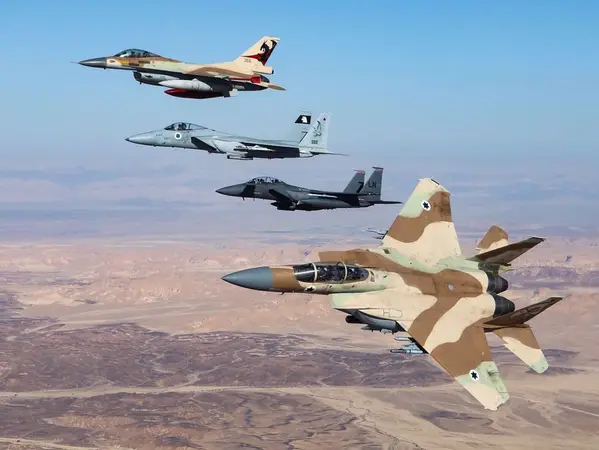With Iran nuclear talks stalled, Israel reportedly appropriated $1.5 billion to prepare for a potential strike at Iran, as US tested a new bunker-buster bomb.
Israel’s Channel 12 reported Monday that the additional money set to be approved by the government in November, would pay for aircraft, intelligence-gathering drones and armaments needed for a strike against hardened Iranian nuclear targets.
US officials, including Secretary of State Antony Blinken have mentioned “other options” if Iran refuses to return to nuclear talks. Tehran suspended the Vienna negotiations in June after the election of Ebrahim Raisi (Raeesi), a hardliner handpicked by Supreme Leader Ali Khamenei.
Although ‘other options’ could mean taking Iran’s case to the UN Security Council for imposing international sanctions, or simply augmenting US sanctions, Israel has been much more adamant that Tehran’s nuclear program should be stopped at any cost. Estimates vary about when Iran could reach the nuclear threshold for a bomb, but both the West and regional countries are concerned that Tehran is building up its stockpile of enriched uranium, while refusing to negotiate.
Israeli officials have warned on several occasions since August that if no options are left they would "go it alone" to stop Iran from acquiring nuclear weapons. That could mean that Israel might not even tolerate Iran becoming a "threshold state", meaning having all the components for a bomb but not actually deploying one.
The US Air Force reported on October 13 that a new 5,000-pound bunker-buster munition was successfully tested by an F-15E Strike Eagle warplane on October 7. This means that the bomb can be launched from fighter planes and could be potentially used by Israel. The GBU-72 Advanced 5K Penetrator was released from 35,000 feet and hit a designated area “surrounded by blast pressure sensors and fragment-counting equipment,” which helps to determine the weapon’s lethality, the Air Force said.
Channel 12 speculated that the US Air Force test was meant to be a warning to Iran not to avoid the nuclear talks. Last week, Iran said it wants to hold discussions with the European Union in Brussels before any return to the main nuclear negotiations, but the State Department on Monday dismissed the idea, saying such talks are not needed. Apparently, Tehran wanted to start a new negotiating tactic that would exclude Washington. In the Vienna Talks the US was present and negotiated indirectly with Iran.
Any conflict with Iran could easily escalate into a separate war with the Lebanese Hezbollah Shiite militant group. A senior Israeli military official said on Monday that Hezbollah can fire 2,000 rockets a day at Israel if conflict breaks out. The group’s leader Hassan Nasrallah also warned his opponents in Lebanon that it has 100,000 fighters, after a brief gun battle in Beirut last week.
